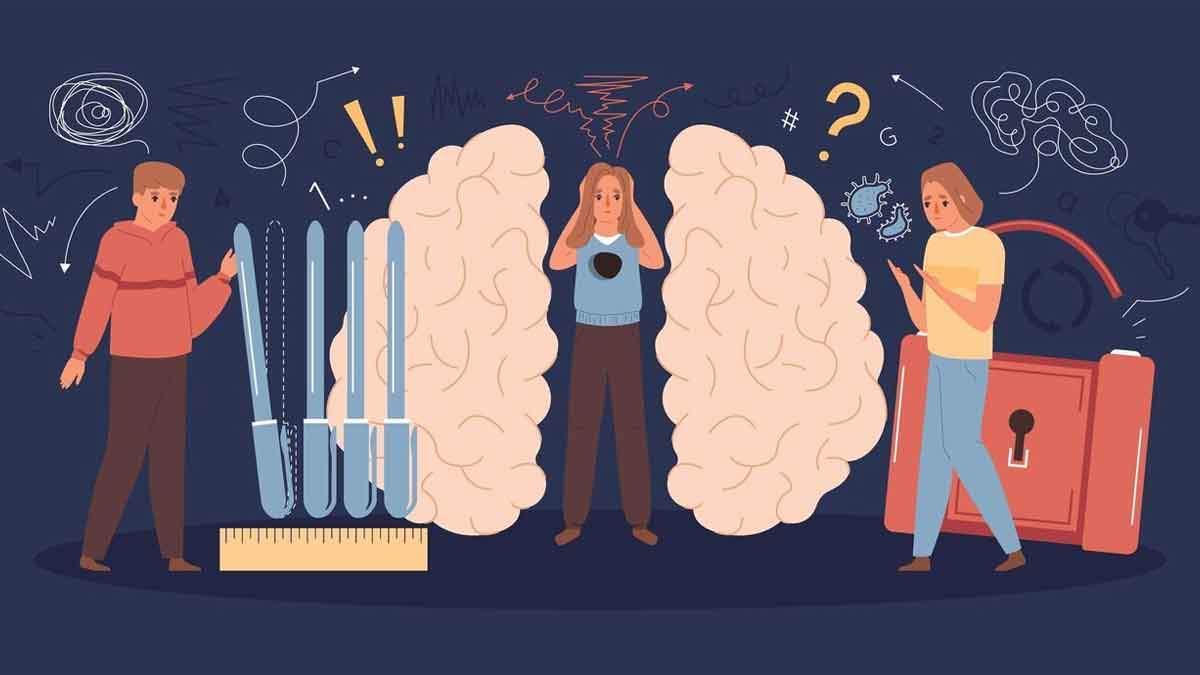
In a recent episode of The Hidden 20% podcast, renowned Game of Thrones actor Kit Harington disclosed a significant aspect of his life that had remained hidden from the public eye—his diagnosis with attention-deficit/hyperactivity disorder (ADHD). This revelation, made during a conversation with podcast host Ben Branson, shed light not only on Harington's personal struggles but also on the broader realm of neurodiversity. As the actor navigates his journey to recovery, it becomes crucial to understand ADHD, its nuances, and the impact it can have on individuals.
Table of Content:-
Kit Harington's Revelations: A Journey to Understanding ADHD
During the podcast, Harington shared the pivotal moment of his ADHD diagnosis while undergoing treatment at a rehabilitation clinic in the United States. Opening up about his battles with alcoholism, social anxiety, and mental health issues, the actor painted a candid picture of the challenges he faced, both personally and professionally. His revelations offer a glimpse into the complexities that accompanied his iconic role in Game of Thrones.

Harington detailed his previous attempt at rehabilitation, describing a phase where he entered rehab under the influence, later realizing that the group therapy setting wasn't conducive to his needs. Subsequently, he opted for an independent approach, only to find it ineffective after four years. The actor credited his timely entry into the American clinic with providing him with the right environment to rebuild his life.
ADHD Challenges in Parenthood
As Harington embraces the role of a responsible father to his two children with his wife Rose Leslie, he acknowledges the ongoing challenges posed by ADHD. Despite attaining newfound sobriety, the actor highlighted the difficulties in focusing on a single task during playtime with his toddler son. While his son enthusiastically engages in imaginative games, Harington admitted to restlessness, often desiring a shift in activities.
Post-rehab and ADHD diagnosis, the actor noted a significant improvement in his social anxiety, attributing it to the adoption of healthier coping mechanisms. His wife, Leslie, emerged as a supportive figure in this transformation. When faced with moments of mental "freeze," Leslie guides him to take a shower, offering a reset for his mind—a strategy that Harington credits with overcoming mental short circuits.
Also Read: Mental Health A-Z: Expert Explains Depression, Its Symptoms, Treatment, And Prevention
Understanding ADHD: Symptoms and Types
ADHD, one of the most common neurodevelopmental disorders, often manifests in childhood and can persist into adulthood. Recognizing the signs is essential for accurate diagnosis and management. According to Dr Fabian Almeida, Consultant Psychiatrist, Fortis Hospital, Kalyan, the symptoms of ADHD can be categorized into three types:
- Predominantly Inattentive Presentation: Difficulty organizing tasks, paying attention to details, and following instructions. Easy distraction and forgetfulness are common.
- Predominantly Hyperactive-Impulsive Presentation: Restlessness, excessive talking, difficulty sitting still, impulsivity, and challenges in waiting or listening to directions.
- Combined Presentation: A combination of symptoms from both inattentive and hyperactive-impulsive types.
Symptoms may evolve over time, necessitating a flexible approach to diagnosis.
Causes of ADHD
While the exact causes of ADHD remain elusive, ongoing research indicates a significant genetic component. Factors such as brain injury, exposure to environmental risks during pregnancy or early life, alcohol and tobacco use during pregnancy, premature delivery, and low birth weight are also under scrutiny. Importantly, research dismisses popular beliefs that ADHD is caused by factors like excessive sugar consumption or environmental stressors, emphasizing the role of genetics.
Also Read: Mental Health A-Z: Expert Explains Anxiety And How To Deal With It
Diagnosis: Navigating a Comprehensive Process
Diagnosing ADHD involves a multistep process, ruling out other potential issues through medical examinations, hearing tests, and vision tests. No single test exists for ADHD diagnosis, and symptoms may overlap with other conditions like anxiety, depression, or learning disabilities. A thorough checklist for rating ADHD symptoms and gathering information from parents, teachers, and the individual contributes to a comprehensive diagnosis.
ADHD in Adults: A Lifelong Journey
Contrary to common perception, ADHD can extend into adulthood. Some adults may have ADHD without a formal diagnosis, with symptoms affecting work, home life, and relationships. Symptoms may manifest differently in adults, emphasizing the need for ongoing awareness and understanding as individuals navigate the demands of adulthood.
Kit Harington's openness about his ADHD journey serves as a catalyst for broader conversations surrounding neurodiversity. By delving into the intricacies of ADHD, we foster a more inclusive understanding of the diverse experiences individuals bring to the table.
Also watch this video
How we keep this article up to date:
We work with experts and keep a close eye on the latest in health and wellness. Whenever there is a new research or helpful information, we update our articles with accurate and useful advice.
Current Version